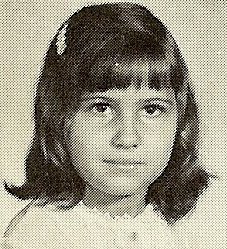 |
| "Midguard Serpent" |
As I post my book reviews, I
note how many of them are not the genre I write, which is medieval dark
fantasy. As much as I like fire-breath
dragons, swashbuckling battle scenes, a magic goodie or two, I find with reading
I like almost everything. But that’s
part of the joy of reading, it allows our minds to open up and expand, thus
fulfilling the human experience.
When I’m writing the Gastar
novellas, I think about story elements that would add to the plot and what inspires
me other than the usual dark fantasy takers (Tolkien everlasting, still
Frankenstein and Dracula these days in stories I’ve read). How can other genres enrich Dark Fantasy?
Non-fiction (not exactly
“genre): Anything based on true stories,
as I’ve written recently can add powerful elements, especially when dark
fantasy writers use historic backdrops.
The bestselling writer Anne Rice comes to mind when I think of
history. But it need not be limited to
that; one could use wartime examples (some say WWII inspired Tolkien) or known
individual events (true crimes or historic families).
Romance seems to be expected
and present in almost every fiction novel I review. With its absence in “Act of Redemption,” I
got criticism for leaving it out by some readers and by my Mom. So, love is eternal and romantic elements
powerfully drive the actions of characters.
If Harlequin can do romance, so can I, so I’m still learning. Erotica can go in any story (example: “Game
of Thrones, very R-rated).
What about intrigue, as seen
in psychological and legal thrillers?
Sure. Characters can lie to each
other, cheat, play tricks, plan conspiracies, break laws and go to trials in
Dark Fantasy. These elements can deepen
a story and breakaway from the “kid grows to be tough to kill his father’s
killer” cliché so often seen in Dark Fantasy. Gangster templates can either make clever
enough protagonists to survive or evil antagonists to be eaten by dragons or
ghouls in whatever gratifying way like a gangster would do, Dark Fantasy-style.
The everlasting serial
murderer fiction has almost replaced the old-fashioned “whodunit” Agatha
Christie style, but could either of these mystery templates add to Dark
Fantasy? Of course! Who killed the
King? Or Princess? Or last evil High Priest? (Shevata, who got
her soul removed for it). Having your
characters figure out by investigating a murder or stealth can again bend away
from the clichés of rescuing a damsel in distress from a fire-breathing dragon.
Last, but not least, what
about women’s literature? How can my recent review of “Love and Other
Impossible Pursuits” inspire a Dark Fantasy story? A woman’s child dies by natural causes her
first day home in the book. A woman’s
child is taken from her and raised by a magician named Merlin (sound
familiar?) A mother had to save her
baby by making a small boat and floating it down the river and the King’s
daughter picked up the child and raised him (from Moses story in the
Bible). So in Dark Fantasy these
powerful emotional tools can move a plot and develop a character’s background,
be it the child, the mother, or a story told by a sage.
New authors, writing a genre
need not limit inspiration from that genre.
Dark Fantasy may influence other genres; “Twilight” is probably the best
well-known example of teen romance with nice vampires in a modern day
backdrop. Though Edward sparkled, was
sensitive, and the werewolf guy never put his shirt on in the films, to give
credit to Meyer, the story was creative.
Maybe not for everyone, but that’s OK, books aren’t supposed to be for
everyone. Now go write something
great. Make the story sparkle in our
minds.









